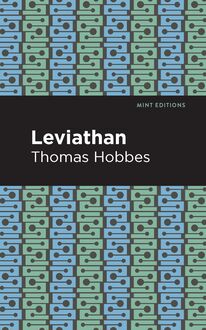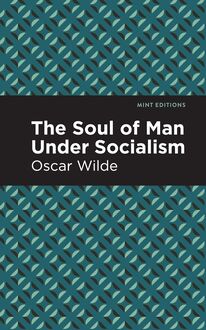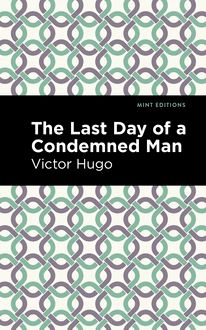-
 Univers
Univers
-
 Ebooks
Ebooks
-
 Livres audio
Livres audio
-
 Presse
Presse
-
 Podcasts
Podcasts
-
 BD
BD
-
 Documents
Documents
-
- Cours
- Révisions
- Ressources pédagogiques
- Sciences de l’éducation
- Manuels scolaires
- Langues
- Travaux de classe
- Annales de BEP
- Etudes supérieures
- Maternelle et primaire
- Fiches de lecture
- Orientation scolaire
- Méthodologie
- Corrigés de devoir
- Annales d’examens et concours
- Annales du bac
- Annales du brevet
- Rapports de stage
La lecture à portée de main
Vous pourrez modifier la taille du texte de cet ouvrage
Découvre YouScribe en t'inscrivant gratuitement
Je m'inscrisDécouvre YouScribe en t'inscrivant gratuitement
Je m'inscrisEn savoir plus
Vous pourrez modifier la taille du texte de cet ouvrage
En savoir plus

Description
Oscar Wilde presents a libertarian socialist view of the economic disparities caused by capitalism, that lead to futile acts of charity instead of definitive solutions. Wilde encourages an overhaul of the structures that allow such inequalities to exist.
The Soul of Man Under Socialism is an insightful look into Wilde’s personal and political beliefs. Within the essay he emphasizes individualism over group think, using Jesus Christ as a prime example. He also offers a detailed critique of capitalist societies that revel in charity, instead of eliminating its need. Poverty cannot be fought with kindness; it requires genuine compassion backed by policy.
Wilde’s perspective was heavily influenced by the writings of Peter Kropotkin, a Russian anarchist and socialist. In The Soul of Man Under Socialism, Wilde invokes powerful ideas that call for accountability and drastic change. It’s a raw declaration of his contemporary anarchist views.
With an eye-catching new cover, and professionally typeset manuscript, this edition of The Soul of Man Under Socialism is both modern and readable.
Sujets
Informations
| Publié par | Mint Editions |
| Date de parution | 02 mars 2021 |
| Nombre de lectures | 0 |
| EAN13 | 9781513218670 |
| Langue | English |
| Poids de l'ouvrage | 1 Mo |
Informations légales : prix de location à la page 0,0250€. Cette information est donnée uniquement à titre indicatif conformément à la législation en vigueur.
Extrait
The Soul of Man Under Socialism
Oscar Wilde
The Soul of Man Under Socialism was first published in 1930.
This edition published by Mint Editions 2020.
ISBN 9781513271279 | E-ISBN 9781513276274
Published by Mint Editions ®
minteditionbooks .com
Publishing Director: Jennifer Newens
Design & Production: Rachel Lopez Metzger
Project Manager: Micaela Clark
Typesetting: Westchester Publishing Services
C ONTENTS B EGIN R EADING
T he chief advantage that would result from the establishment of Socialism is, undoubtedly, the fact that Socialism would relieve us from that sordid necessity of living for others which, in the present condition of things, presses so hardly upon almost everybody. In fact, scarcely anyone at all escapes.
Now and then, in the course of the century, a great man of science, like Darwin; a great poet, like Keats; a fine critical spirit, like M. Renan; a supreme artist, like Flaubert, has been able to isolate himself, to keep himself out of reach of the clamorous claims of others, to stand ‘under the shelter of the wall,’ as Plato puts it, and so to realise the perfection of what was in him, to his own incomparable gain, and to the incomparable and lasting gain of the whole world. These, however, are exceptions. The majority of people spoil their lives by an unhealthy and exaggerated altruism—are forced, indeed, so to spoil them. They find themselves surrounded by hideous poverty, by hideous ugliness, by hideous starvation. It is inevitable that they should be strongly moved by all this. The emotions of man are stirred more quickly than man’s intelligence; and, as I pointed out some time ago in an article on the function of criticism, it is much more easy to have sympathy with suffering than it is to have sympathy with thought. Accordingly, with admirable, though misdirected intentions, they very seriously and very sentimentally set themselves to the task of remedying the evils that they see. But their remedies do not cure the disease: they merely prolong it. Indeed, their remedies are part of the disease.
They try to solve the problem of poverty, for instance, by keeping the poor alive; or, in the case of a very advanced school, by amusing the poor.
But this is not a solution: it is an aggravation of the difficulty. The proper aim is to try and reconstruct society on such a basis that poverty will be impossible. And the altruistic virtues have really prevented the carrying out of this aim. Just as the worst slave-owners were those who were kind to their slaves, and so prevented the horror of the system being realised by those who suffered from it, and understood by those who contemplated it, so, in the present state of things in England, the people who do most harm are the people who try to do most good; and at last we have had the spectacle of men who have really studied the problem and know the life—educated men who live in the East End—coming forward and imploring the community to restrain its altruistic impulses of charity, benevolence, and the like. They do so on the ground that such charity degrades and demoralises. They are perfectly right. Charity creates a multitude of sins.
There is also this to be said. It is immoral to use private property in order to alleviate the horrible evils that result from the institution of private property. It is both immoral and unfair.
Under Socialism all this will, of course, be altered. There will be no people living in fetid dens and fetid rags, and bringing up unhealthy, hunger-pinched children in the midst of impossible and absolutely repulsive surroundings. The security of society will not depend, as it does now, on the state of the weather. If a frost comes we shall not have a hundred thousand men out of work, tramping about the streets in a state of disgusting misery, or whining to their neighbours for alms, or crowding round the doors of loathsome shelters to try and secure a hunch of bread and a night’s unclean lodging. Each member of the society will share in the general prosperity and happiness of the society, and if a frost comes no one will practically be anything the worse.
Upon the other hand, Socialism itself will be of value simply because it will lead to Individualism.
Socialism, Communism, or whatever one chooses to call it, by converting private property into public wealth, and substituting co-operation for competition, will restore society to its proper condition of a thoroughly healthy organism, and insure the material well-being of each member of the community. It will, in fact, give Life its proper basis and its proper environment. But for the full development of Life to its highest mode of perfection, something more is needed. What is needed is Individualism. If the Socialism is Authoritarian; if there are Governments armed with economic power as they are now with political power; if, in a word, we are to have Industrial Tyrannies, then the last state of man will be worse than the first. At present, in consequence of the existence of private property, a great many people are enabled to develop a certain very limited amount of Individualism. They are either under no necessity to work for their living, or are enabled to choose the sphere of activity that is really congenial to them, and gives them pleasure. These are the poets, the philosophers, the men of science, the men of culture—in a word, the real men, the men who have realised themselves, and in whom all Humanity gains a partial realisation. Upon the other hand, there are a great many people who, having no private property of their own, and being always on the brink of sheer starvation, are compelled to do the work of beasts of burden, to do work that is quite uncongenial to them, and to which they are forced by the peremptory, unreasonable, degrading Tyranny of want. These are the poor, and amongst them there is no grace of manner, or charm of speech, or civilisation, or culture, or refinement in pleasures, or joy of life. From their collective force Humanity gains much in material prosperity. But it is only the material result that it gains, and the man who is poor is in himself absolutely of no importance. He is merely the infinitesimal atom of a force that, so far from regarding him, crushes him: indeed, prefers him crushed, as in that case he is far more obedient.
Of course, it might be said that the Individualism generated under conditions of private property is not always, or even as a rule, of a fine or wonderful type, and that the poor, if they have not culture and charm, have still many virtues. Both these statements would be quite true. The possession of private property is very often extremely demoralising, and that is, of course, one of the reasons why Socialism wants to get rid of the institution. In fact, property is really a nuisance. Some years ago people went about the country saying that property has duties. They said it so often and so tediously that, at last, the Church has begun to say it. One hears it now from every pulpit. It is perfectly true. Property not merely has duties, but has so many duties that its possession to any large extent is a bore. It involves endless claims upon one, endless attention to business, endless bother. If property had simply pleasures, we could stand it; but its duties make it unbearable. In the interest of the rich we must get rid of it. The virtues of the poor may be readily admitted, and are much to be regretted. We are often told that the poor are grateful for charity. Some of them are, no doubt, but the best amongst the poor are never grateful. They are ungrateful, discontented, disobedient, and rebellious. They are quite right to be so. Charity they feel to be a ridiculously inadequate mode of partial restitution, or a sentimental dole, usually accompanied by some impertinent attempt on the part of the sentimentalist to tyrannise over their private lives. Why should they be grateful for the crumbs that fall from the rich man’s table? They should be seated at the board, and are beginning to know it. As for being discontented, a man who would not be discontented with such surroundings and such a low mode of life would be a perfect brute. Disobedience, in the eyes of anyone who has read history, is man’s original virtue. It is through disobedience that progress has been made, through disobedience and through rebellion. Sometimes the poor are praised for being thrifty. But to recommend thrift to the poor is both grotesque and insulting. It is like advising a man who is starving to eat less. For a town or country labourer to practise thrift would be absolutely immoral. Man should not be ready to show that he can live like a badly-fed animal. He should decline to live like that, and should either steal or go on the rates, which is considered by many to be a form of stealing. As for begging, it is safer to beg than to take, but it is finer to take than to beg. No: a poor man who is ungrateful, unthrifty, discontented, and rebellious, is probably a real personality, and has much in him. He is at any rate a healthy protest. As for the virtuous poor, one can pity them, of course, but one cannot possibly admire them. They have made private terms with the enemy, and sold their birthright for very bad pottage. They must also be extraordinarily stupid. I can quite understand a man accepting laws that protect private property, and admit of its accumulation, as long as he himself is able under those conditions to realise some form of beautiful and intellectual life. But it is almost incredible to me how a man whose life is marred and made hideous by such laws can possibly acquiesce in their continuance.
-
 Univers
Univers
-
 Ebooks
Ebooks
-
 Livres audio
Livres audio
-
 Presse
Presse
-
 Podcasts
Podcasts
-
 BD
BD
-
 Documents
Documents
-
Jeunesse
-
Littérature
-
Ressources professionnelles
-
Santé et bien-être
-
Savoirs
-
Education
-
Loisirs et hobbies
-
Art, musique et cinéma
-
Actualité et débat de société
-
Jeunesse
-
Littérature
-
Ressources professionnelles
-
Santé et bien-être
-
Savoirs
-
Education
-
Loisirs et hobbies
-
Art, musique et cinéma
-
Actualité et débat de société
-
Actualités
-
Lifestyle
-
Presse jeunesse
-
Presse professionnelle
-
Pratique
-
Presse sportive
-
Presse internationale
-
Culture & Médias
-
Action et Aventures
-
Science-fiction et Fantasy
-
Société
-
Jeunesse
-
Littérature
-
Ressources professionnelles
-
Santé et bien-être
-
Savoirs
-
Education
-
Loisirs et hobbies
-
Art, musique et cinéma
-
Actualité et débat de société
- Cours
- Révisions
- Ressources pédagogiques
- Sciences de l’éducation
- Manuels scolaires
- Langues
- Travaux de classe
- Annales de BEP
- Etudes supérieures
- Maternelle et primaire
- Fiches de lecture
- Orientation scolaire
- Méthodologie
- Corrigés de devoir
- Annales d’examens et concours
- Annales du bac
- Annales du brevet
- Rapports de stage




















